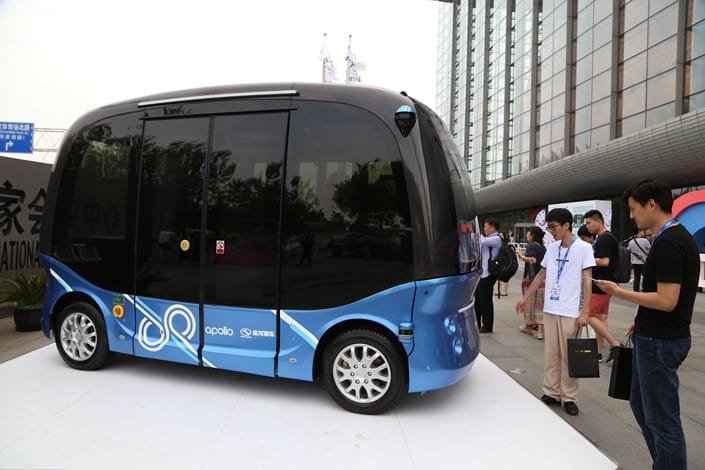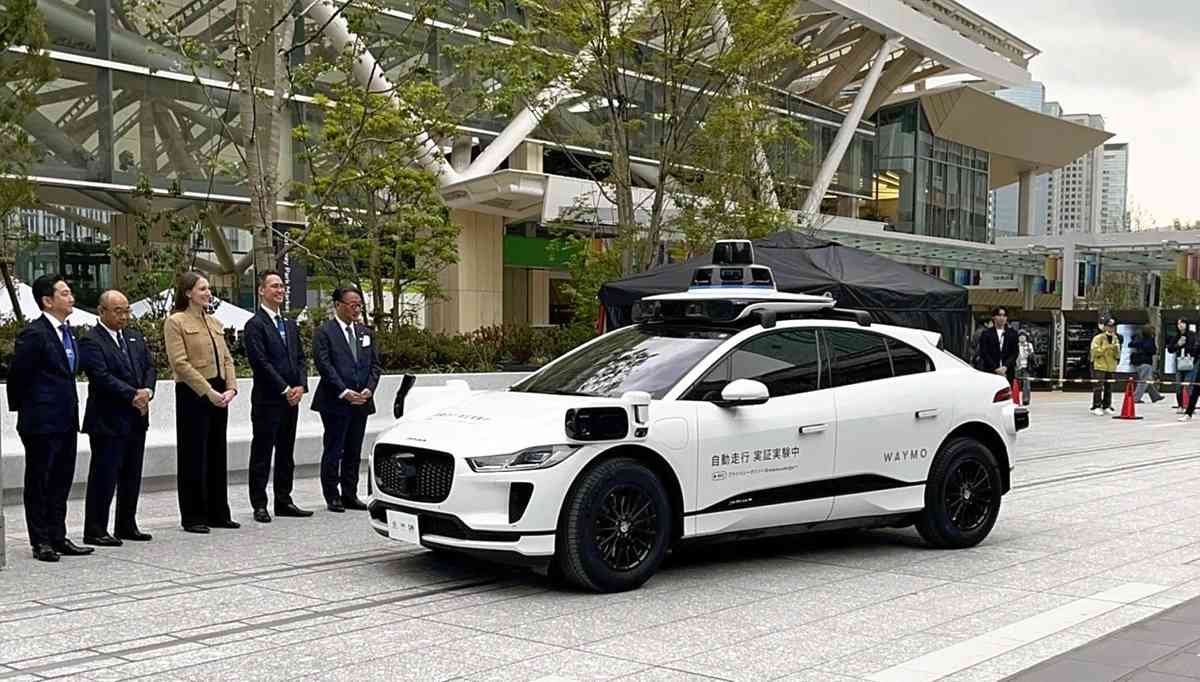Revolution on Wheels: Tokyo Gears Up for Self-Driving Taxi Trials with Waymo and Other Innovators Launching 25 Autonomous Cars Across the City!
Of course! Please provide the article excerpt you would like me to rewrite, and I’ll help you make it more engaging

Revolution on Wheels: Tokyo Gears Up for Self-Driving Taxi Trials
As the skyline of Tokyo glimmers against the backdrop of technological advancements, the city is on the brink of witnessing a transformative experience in urban transportation. With the launch of trials for **self-driving taxis**, spearheaded by Waymo—alongside various other innovative companies—Tokyo is preparing to introduce a fleet of **25 autonomous vehicles** that are set to navigate its bustling streets. This initiative not only promises to revolutionize how citizens commute, but it also highlights the intersection of **technology**, **infrastructure**, and **societal change**.
The Landscape of Tokyo’s Autonomous Driving Trials
In an era where urban congestion and environmental concerns have become increasingly pressing, the introduction of autonomous taxis could provide a pivotal solution. These trials will allow for a deeper analysis of how self-driving technology can coexist with human-driven vehicles, and the unique challenges posed by Tokyo’s vibrant traffic. The trials are not merely tests of technology; they are a litmus test for public acceptance and regulatory adaptation.
Key Features of the Autonomous Taxi Trials
The trials feature several intrinsic characteristics that set them apart from previous initiatives in other global cities:
- Safety First: Equipped with advanced sensors and AI algorithms, these self-driving taxis are designed to prioritize passenger safety, adhering to strict regulations that emphasize their use in urban settings.
- Real-World Integration: The autonomous taxis will not only operate in designated areas but integrate into Tokyo’s complex traffic system, navigating through narrow streets and intersections typical of the metropolis.
- Environmental Efficiency: Many of the vehicles selected for these trials are electric, promoting a shift toward sustainable urban mobility while reducing greenhouse gas emissions significantly.
- User-Centric Design: The services will include on-demand booking through a mobile app, mirroring the convenience offered by ride-hailing services, while ensuring a seamless experience for the users.
- Data-Driven Insights: The trials will generate a wealth of data regarding traffic patterns, passenger behavior, and vehicle performance, which can inform future infrastructure projects and technology improvements.
The Benefits of Autonomous Taxis in Tokyo
The potential benefits of introducing self-driving taxis are vast and multifaceted, fostering innovations that could reshape urban transportation in the following ways:
- Reduced Traffic Congestion: By optimizing routes and reducing the number of vehicles on the road, autonomous taxis could alleviate some of the traffic pressure that plagues Tokyo, making commutes more efficient for everyone.
- Accessibility: Autonomous taxis hold the promise of increased mobility for elderly and disabled individuals who may find traditional taxi services challenging to access.
- Social Impact: By generating new opportunities for employment in tech and transport sectors, this initiative also challenges the narrative surrounding automation and job displacement.
- Tourism Boost: With Tokyo being a major tourist destination, autonomous taxis could offer visitors a novel experience, enhancing attractiveness and convenience while navigating through iconic sites.
- Enhancing Local Technology Ecosystem: This trial positions Tokyo as a leader in the global technology race and could encourage investments in local tech startups that focus on vehicular automation and AI.

Challenges on the Road Ahead
Even as the trials spark excitement and optimism, potential challenges linger on the horizon. Several obstacles must be navigated to realize the full potential of self-driving technology:
- Public Sentiment: The acceptance of autonomous vehicles by the public is paramount. Fear of the unknown and concerns about safety could inhibit widespread adoption.
- Regulatory Environment: Tokyo’s local government has a crucial role in creating a supportive regulatory framework, ensuring that the technology complies with existing transportation laws while enabling innovation.
- Technological Hurdles: Navigating the intricacies of Tokyo’s infrastructure, including its dense urban landscape, poses significant challenges for the algorithms guiding the autonomous vehicles.
- Insurance and Liability Issues: As these vehicles begin to operate in public spaces, questions surrounding liability in the event of accidents will need to be addressed through legislation and industry standards.
A Unique Perspective on the Future of Mobility
From a broader vantage point, the Tokyo trials can be seen as a case study for cities around the globe that are also grappling with the realities of urban transportation and its inherent challenges. As more cities explore the possibility of integrating autonomous vehicles into their public transit systems, the outcomes of Tokyo’s initiative could pave the way for new policies and frameworks. Experts argue that the learnings from these trials will go beyond mere transportation; they may redefine how cities strategize urban planning through a lens of sustainability and efficiency.
Dr. Naomi Kawasaki, a transportation technology researcher at the University of Tokyo emphasized, “The success of autonomous taxis will not just be determined by their technological capability, but also by the extent to which they align with the values and needs of the community.” This perspective underscores the need for industry stakeholders to engage with local citizens, incorporating their feedback into ongoing iterations of the technology.
Looking Beyond Tokyo: Global Implications
While the focus is on Tokyo, the implications of this initiative extend beyond Japan. Cities like San Francisco, London, and Singapore have already started their voyages down the autonomous vehicle path. The results from Tokyo could serve as a springboard for collaborative learning, inspiring global partnerships that aim for harmonized regulations and cross-border innovations. Autonomous vehicles could become part of a broader smart city infrastructure that enhances the quality of life, building cleaner, safer, and smarter urban environments worldwide.
Conclusion: A Future on Wheels
The launch of self-driving taxi trials in Tokyo marks a significant milestone in the evolution of urban transportation. It presents an opportunity not just for technological advancement, but for societal change—prompting discussions on issues related to accessibility, job creation, safety, and urban planning. As the city embarks on this journey with partners like Waymo, the world will undoubtedly observe closely, learning valuable lessons that will shape the future of mobility in cities everywhere.
For more insights on emerging technologies and urban innovation, explore our catalog of articles on BizTechLive and stay informed about developments that could alter the landscape of urban life.
To learn more about the global impact of autonomous vehicles, you can refer to external resources such as the National Highway Traffic Safety Administration for current regulations and advancements in vehicle automation.






